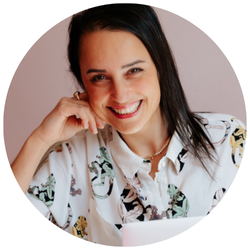"I can't focus." We've all said these words before.
But the reality is not that we can't focus — after all, the human brain is always paying attention and, consciously or not, focusing on something — but rather that we can't control our focus.
Let's look into the psychology of attention and focus to better understand how we can control our focus — and our productivity.

Imagine this:
You’re sitting at your desk writing a blog post. You know everything about the topic you're writing about. In fact, you love it so much that everything around you disappears.
This is attention at work.
But suddenly, your stomach makes noises, and you remember that you have to go get groceries because there's nothing in the fridge.
This is still attention at work.
You take note, and you get back to writing. But suddenly, the doorbell startles you, making you stand up and go open the door.
This is, again, attention at work.
How is that possible? Are you "paying attention" even while being distracted? Yes, you are. The reason this seems counterintuitive is because we tend to use the words “focus” and “attention” interchangeably.
So what’s the difference? In simple terms:
Attention means “attending to one thing among many others.”
Focus is “continuing to attend to something, without drifting away, for a prolonged period of time.”
They're both important, but they hold very different purposes.
Paying Attention
According to the Information Processing Model — a model used in psychology to describe how we make sense of the information we get from our environment and our minds, and how we take action — attention is the process that allows us to bring what we perceive into short-term memory.
By doing this, we become conscious of the perceived information and can decide what to do with it. Since short-term memory is limited in capacity, paying attention to fewer things prevents us from being overwhelmed by all the information available in the environment and in our minds.
In other words: Filtering things out is literally what keeps us sane.
In other words: Filtering things out is literally what keeps us sane.
But attention is also the ability not to be locked in a task, ignoring other, more vital possibilities.
Letting info in is what keeps us safe.
Imagine you’re reading an engrossing book when you smell smoke. Your attention on the book is interrupted by this new information filtering in. And that's a good thing!
Letting info in is what keeps us safe.
Having both the ability to be locked into a task and also get unlocked from a task is crucial from a productivity perspective, as well. High productivity is possible when we feel safe and are able to process what is happening around us.
There are different types of attention, but we'll focus on two here:
- Top-downattention is intentionally directed to an object or task, like reading an email or writing a chapter of your book.
- Bottom-upattention is driven by unexpected signals, such as a phone ringing or the smell of smoke.
Finding Focus
Focus is characterized by being locked into a task for a prolonged period of time. However, like attention, it is not always intentional — even if we tend to think the opposite.
Let's say you have a problem with your boss, and you can't help but think about it during your off-hours. You spend a lot of time stuck on those thoughts, and the more you try to move your mind away from them, the more it latches on. That's focus. Not a productive type of focus, but still focus. (Different mental health issues and personality types will affect how your brain handles focus, too.)
Often, we hear about concepts such as "Deep Focus," "Hyper Focus," and other types of focus with catchy names.
These aren't really specific types of focus, cognitively speaking, but simply definitions from very handy frameworks in renowned productivity books about organizing and structuring work. They can be useful in visualizing your own work.
Hyper Focus, for example, happens when we expand a task “to fill completely our attention space,” as Chris Bailey explains in his book Hyperfocus: How to Be More Productive in a World of Distraction. It is “intense focus, coupled with deliberate attention.”
Deep Focus, also known as "Deep Work," refers to focus without distractions, as Cal Newport teaches.
Whatever you call it, focus is integral to being our most productive selves.
--
Remember: There is no such thing as a lack of focus, but, instead, a lack of control over it.
And understanding what focus and attention are and how they work will empower you to gain the control that makes you more productive.
Next, learn how focus affects creativity.




























